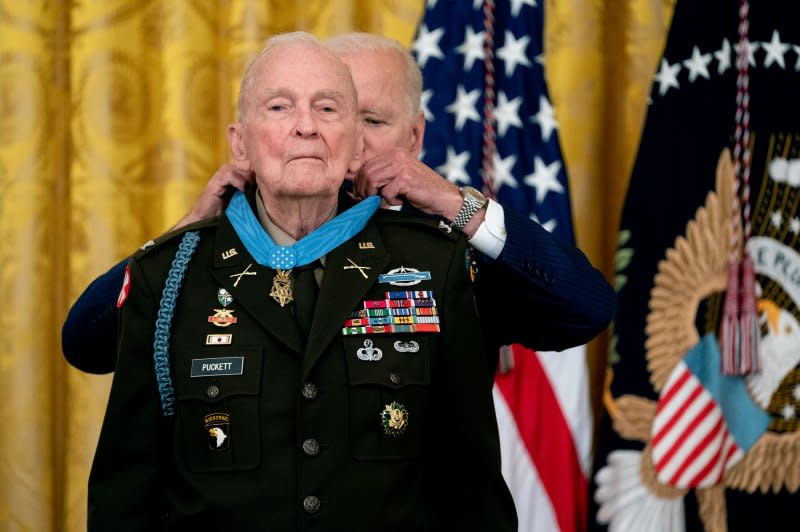'True hero of Korean War' Col. Ralph Puckett Jr. honored at U.S. Capitol
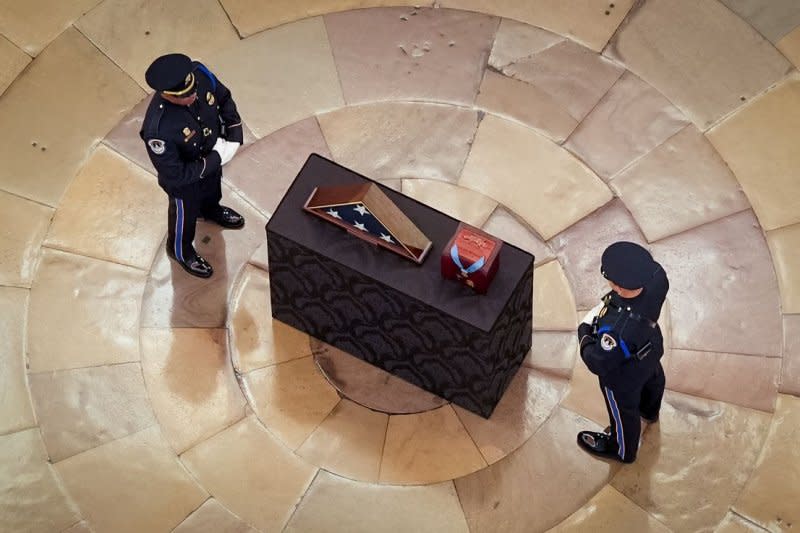
- Oops!Something went wrong.Please try again later.
April 29 (UPI) -- The remains of retired Army Col. Ralph Puckett Jr., the last living Korean War Medal of Honor recipient, lie in honor at the Capitol in Washington, D.C., on Monday after his death at age 97 earlier this month.
An urn containing Puckett's cremated remains was placed in the U.S. Capitol Rotunda for public viewing for two hours Monday afternoon following a ceremony attended by Senate Minority Leader Mitch McConnell, U.S. House Speaker Mike Johnson, family members, friends and others.
The posthumous ceremony for Puckett, a native of Tifton, Ga., came nearly three years after he was awarded the Medal of Honor at the White House for his actions as a first lieutenant during the Battle of Unsan in North Korea.
During that May 2021 ceremony, he was praised by U.S. President Joe Biden and South Korean counterpart Moon Jae-in as "a true hero of the Korean War."
Puckett died April 8 in Columbus, Ga.
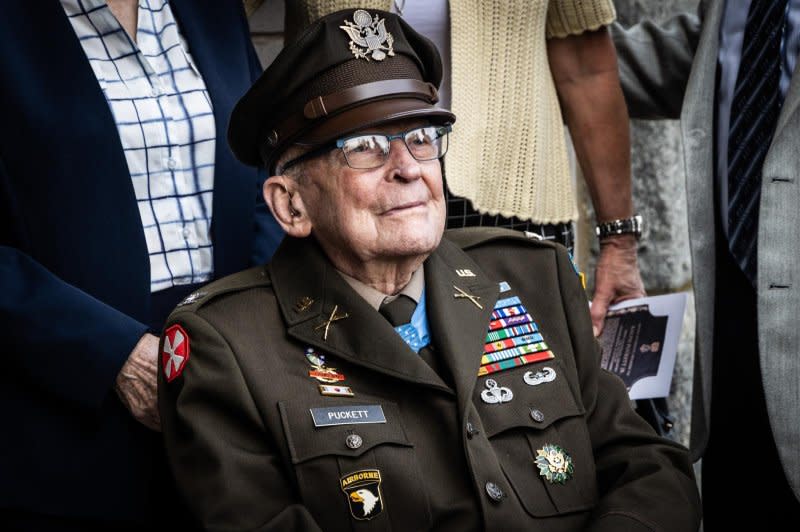
According to his official biography, Puckett led his U.S. Army Rangers company in an attack on Hill 205 in North Korea in November 1950, exposing himself to deadly enemy fire on multiple occasions.
During the battle, he intentionally ran across an open area three times to draw enemy fire, thereby allowing the Rangers to locate and destroy the enemy positions and to seize the hill although being outnumbered 10-to-1.
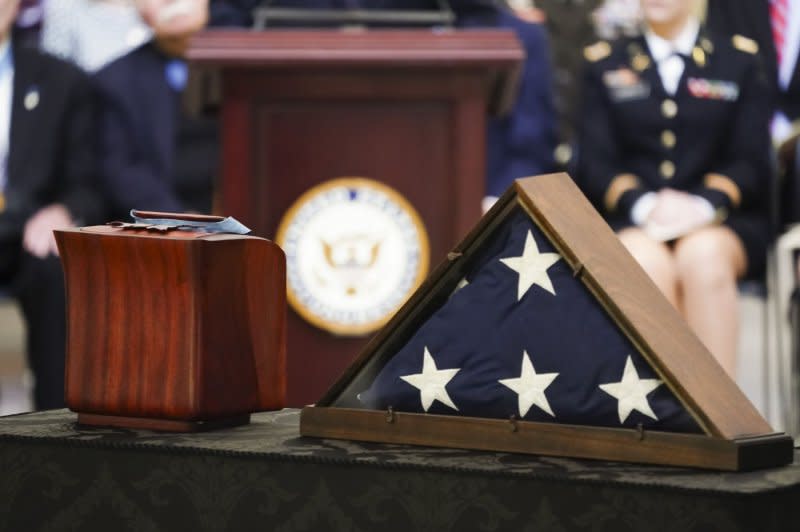
Puckett was wounded by grenade fragments during the first of six attacks by communist troops, but he nonetheless refused evacuation and "continually directed artillery support that decimated attacking enemy formations."
Biographers said he repeatedly abandoned positions of relative safety to make his way from foxhole to foxhole to check the company's perimeter and distribute ammunition amongst the Rangers.
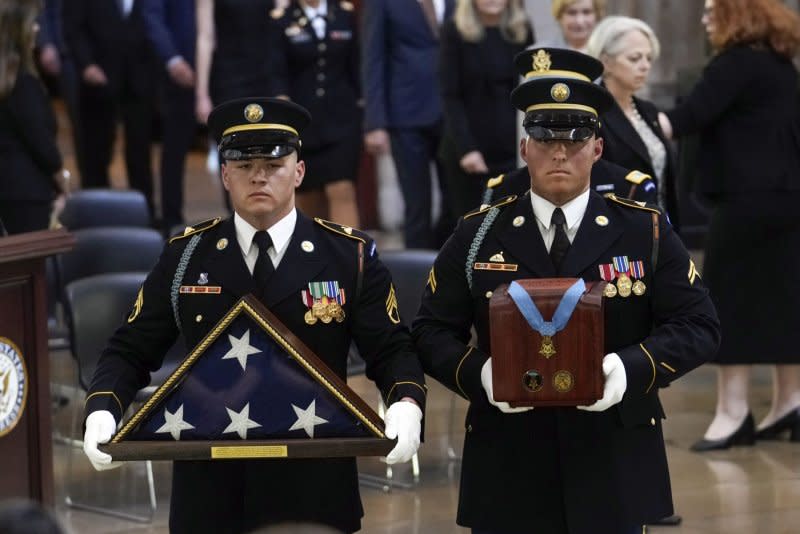
During the sixth and final attack, Puckett sustained "grievous injuries" from mortar fire and commanded his company to leave him behind to evacuate. His Rangers colleagues, however, refused the order and retrieved their commander from his foxhole while still under fire.
Ultimately, the Rangers succeeded in moving Puckett to the bottom of the hill, where he called for devastating artillery fire on the top of the enemy-controlled hill.
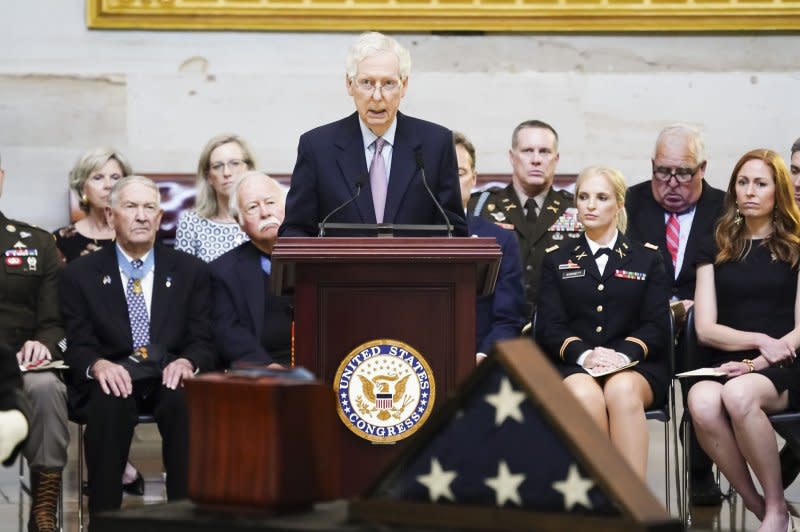
His "extraordinary heroism and selflessness above and beyond the call of duty were in keeping with the highest traditions of military service and reflect great credit upon himself, his unit, and the United States Army," his official commendation reads.
Puckett also a served with the Army during the Vietnam War and retired as a colonel following a 22-year career. Before receiving the Medal of Honor in 2021, he was awarded two Distinguished Service Crosses, two Silver Stars in Vietnam and five Purple Hearts across the two wars.
